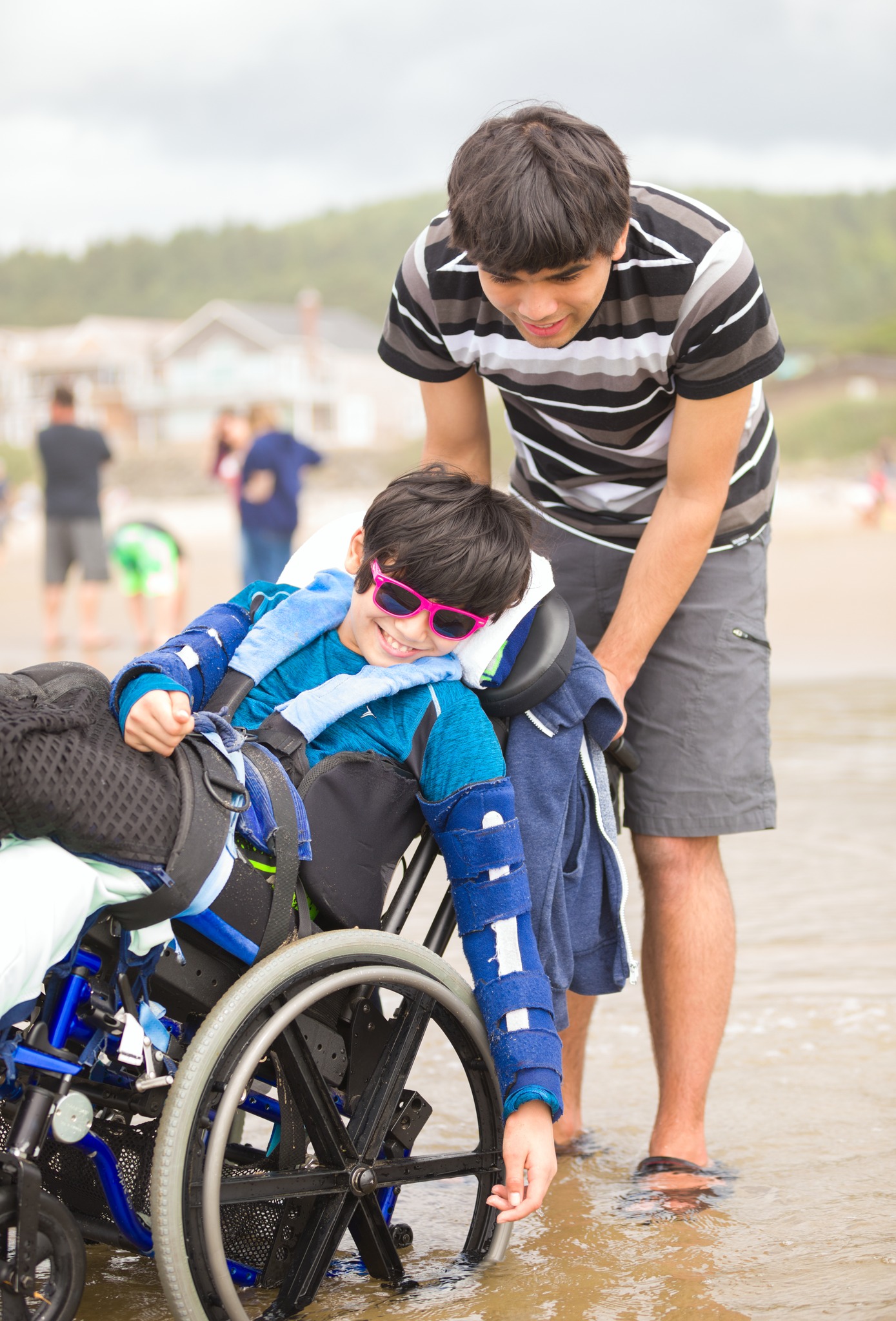
4 minute read
Sibs: The only UK charity dedicated to the brothers and sisters of disabled children and adults
Siblings are a valuable and positive part of a family, and often provide friendship and care for their brothers and sisters, while sometimes not receiving the recognition or support that they need.
Sib’s Chief Executive, Clare Kassa, sat down with KtoA Magazine to share how they support the more than two million people who are growing up with, or have grown up with, a disabled brother or sister.
What is it like to be a sibling?
Siblings play a crucial and unique role in the lives of their disabled brothers and sisters. Through this special relationship they provide care, understanding, friendship, companionship and support. However, siblings as a group are often poorly understood and their needs are often overlooked. They face their own challenges too and can struggle to have their needs met.
As one young sibling told us: “My sister is autistic, and she has sensory difficulties. She often has meltdowns and squeals, and people would give us nasty looks that make it even more difficult going in public places by putting us off. It would be amazing if people understand and accept others with additional needs. Not every disability is visible.”
Siblings may experience fiercely conflicting feelings – loyalty versus embarrassment, sadness versus joy, over-protection versus the need to be selfish.
Siblings face challenges at each life stage and may worry about key transition points for both themselves and their brothers and sisters. We recognise that siblings face a range of experiences, and that the sibling relationship can look very different at different stages of life:
• Young siblings – children and young people growing up with a disabled brother or sister often find that life is harder for them than their peers. Many young siblings experience daily challenges at home and at school and can feel like no one understands what life is like for them. Around half of all young carers are providing care for a sibling.
• Young adult siblings may struggle with decisions such as whether to leave home, find a romantic partner, go to university or go into full-time paid work because of the impact of these decisions on their brother or sister’s care. They worry about the future and who will look after their brother or sister when their parents can no longer care for them.
• Siblings in their mid-life are often caring for elderly parents and parents in-law, looking after their own children and managing a working life – all alongside providing advocacy and support for their brother or sister too.
• Older adult siblings may be struggling with their own ageing process and the disabling effects of this, whilst supporting their disabled brother or sister with theirs too. They may be their brother or sister’s only living relative and worry about their mortality more than their peers.

How can Sibs help?
Siblings can become used to prioritising the needs of family members over their own. This can mean that their own health and wellbeing suffers as a result. Many adult siblings tell us they find it hard to manage their emotions at times, in particular feelings of worry, guilt, anger and sadness.
Sibs is the only UK charity dedicated to supporting siblings of disabled people. We provide support for siblings in the following ways:
• YoungSibs is our information hub for young siblings aged seven to seventeen providing information and support for children and young people who are growing up with a disabled brother or sister.
• Information and advice for adult siblings, parents and professionals is available on the Sibs website, twenty-four hours a day.
• We train and support those who run sibling support groups for children and co-ordinate a network of peer support groups for adult siblings.
• We produce guides for adult siblings on issues surrounding the care and support of their brother/sister, such as future planning and managing care.
• We run online workshops and events for adult siblings, parents of young siblings and professionals who support them.
There is a long way to go before the important role siblings play is acknowledged by service providers – something we are working hard to change. Siblings need to be valued and included in key discussions about their brother or sister’s lives, a whole family approach is critical. When siblings are well supported, it has a direct impact on the wellbeing of disabled brothers and sisters, as well as the wider family too.
For more information about Sibs, visit their website at: www.sibs.org.uk












